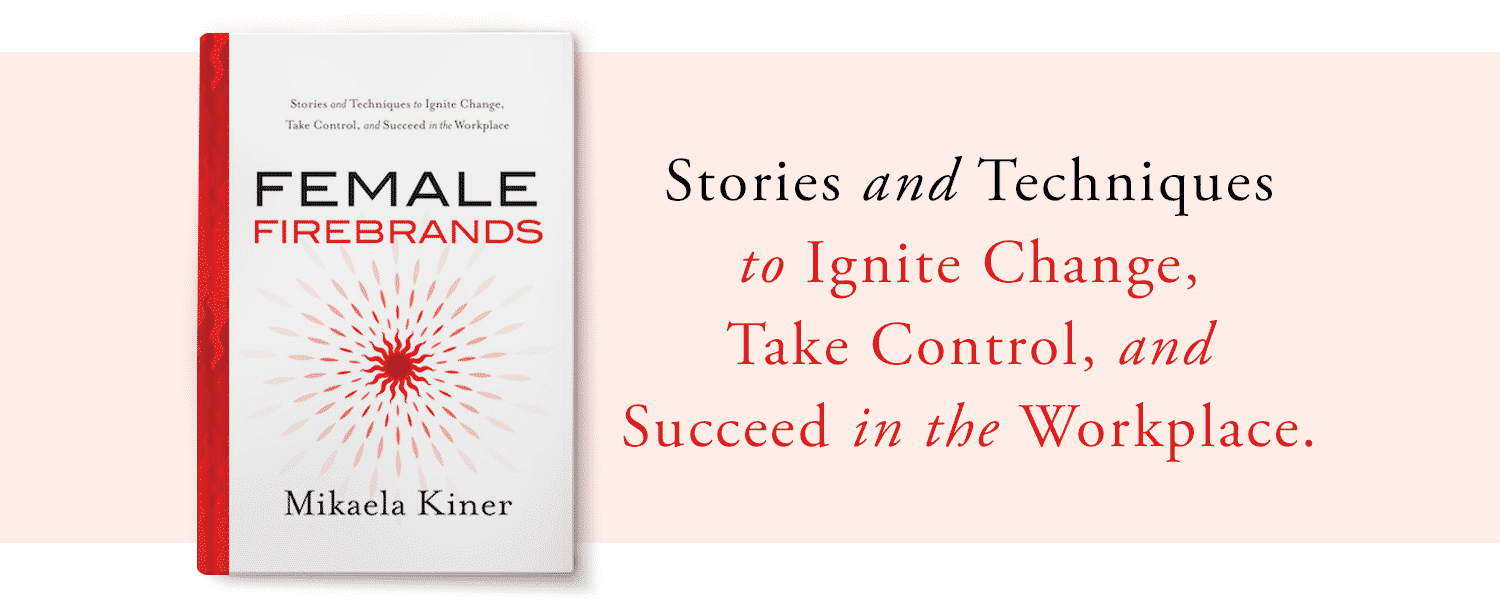When I asked the thirteen Female Firebrands in my book how they were treated by women at work, the result was an outpouring of stories and emotions. We often talk about the importance of sisterhood, but there’s a dark side of women working together that we don’t talk about nearly enough, and that’s female rivalry. I heard stories of female bosses sabotaging their direct reports, peers gossiping about and excluding their coworkers, and women including those in HR dismissing other women’s complaints of harassment and discrimination.
Some of my own biggest advocates have been women. Unfortunately, so have my biggest detractors. One female boss told me not to speak in meetings because my (relevant) questions were “derailing.” Another said I was arrogant without feedback or examples I could learn from, and yet another told me I was too goal oriented (I never knew that was a bad thing, did you?).
Do we hold women to a higher standard?
It’s healthy to compete, and important that we check our biases about gender when it comes to workplace competition. Do we expect to compete with men but not women? In his Work Life podcast episode Become Friends With Your Rivals, Adam Grant presents an alternative take on rivalry; what he calls supportive rivalry. Grant describes how rivalry makes us better, when we compete with collaboration.
Grant’s description gave me a framework to better understand competition between women. Healthy competition is more than fine, it’s expected, and necessary. Do your best, compete aggressively, and may the best woman win.
One Seat at the Table Drives Bad Behavior
What we need to stop is unhealthy rivalry where we put each other down, where we assume and act as if there’s only space for one woman – at the table, on a team, in the room, etc. This type of treatment reinforces power standards and stereotypes that have dogged women since the beginning of time.
Enough is enough. It’s time women stop creating barriers for each other – in the form of hazing, arbitrarily high standards, moving targets, and perpetuating the ‘one seat at the table’ mentality. If there isn’t room for all of us, then we need to make room by acting as allies and advocates vs. reinforcing outdated stereotypes. Let’s compete by lifting each other up vs. putting each other down.
Hazing Happens
Firebrand Leslie Feinzaig says “There are two kinds of people when it comes to hazing. Those who think ‘I went through this so you wouldn’t have to’ and ‘I went through this, so you have to as well.’” Think about that for a moment. Are you making it hard for other women because you’re still bitter about your own experience? Imagine if we all used our past to pave the way for future generations, what a difference it would make.
One thing most women agree on is that unfair competition between women feels personal. Just like it’s easier for a guy to call out another guy on bad behavior, it’s also easier for women to support one another. While each woman is her own unique person, we also share many common goals, challenges, hopes, and aspirations. Let’s use what we have in common to help not hinder one another in our personal and professional journeys. I’m willing to do better, are you?

Female rivalry is also discussed in Mikaela Kiner’s new book, Female Firebrands. The book is now available for purchase. Buy it on Amazon, Barnes and Noble or various other retail sites.
Also be sure to check out The Advocacy Spectrum workshop. The Advocacy Spectrum is a Female Firebrand service provided by Reverb. Contact us at info@reverbpeople.com.















One Response